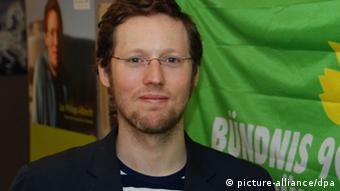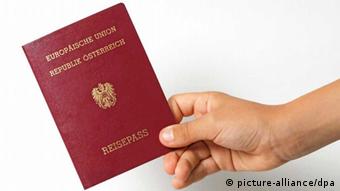Cyprus's President Nikos Anastasiades intends to reward wealthy Russian investors in his country with citizenship. But other EU countries also make it easier for the very wealthy to become citizens.
Money can't buy love, but if you can afford it, it can get you the citizenship of an EU member country. It's desirable for anyone who wants to leave a crisis area or wants to travel around the world more easily. Many visa restrictions fall away.
With EU citizenship, it is also significantly easier to do business in Europe. In future, to get a passport in Cyprus, you have to invest three million euros ($4 million) there. At least that is what President Nikos Anastasiades announced on Sunday (14.04.2013), trying to placate Russian businessmen at their annual business meeting in Limassol.
Anastasiades said he was aware of the losses that would be incurred by the EU bailout. It has, however, always been possible to "buy" a Cypriot passport, but until now, candidates had to invest at least 15 million euros over five years.
Jan Philipp Albrecht finds regulations of this type "inappropriate." The Green Party politician and European parliamentarian wants a common immigration policy for all EU countries.
"I think it's always questionable when countries – and EU states in particular – award their citizenship arbitrarily." Ultimately, there are enough people living in an EU country who are still waiting for naturalization, he said. "The issue must be the same for all," Albrecht said in an interview with DW.
Buy a house, get a passport
In fact the countries of Europe have very different immigration policies. In Ireland, prior to 2001, citizenship could be acquired comparatively easily by investing in the country. Now an investment of 500,000 euros for a public project in the areas of education, health, arts or sports only brings a residence permit.
In Portugal, immigration is linked to the purchase of a property, and Spain would also like to institute a similar policy: The plan is a lower limit of 160,000 euros to provide property buyers with a residence permit. In Hungary, the purchase of government bonds helps pave the way to the new homeland. Potential buyers come from Russia, China and India in particular.
But the European country that makes the greatest effort to advertise to well-heeled customers is Austria. The government is allowed there by law to confer citizenship "because of the services already provided by the foreigner and the extraordinary achievements still to be expected of him in the special interest of the Republic." Media reports say, for example, that a Saudi hotel investor and the Russian singer Anna Netrebko received an Austrian passport in this way.
'Bought passport' the exception
'Bought passport' the exception
"I think it's aesthetically problematic," said Dietrich Thränhardt, professor emeritus at the University of Münster and a specialist on migration policy, "but it does not endanger the European Union." There was only a small number of people who acquire citizenship in this way, he said in an interview with DW. No one was naturalized in 2012 in return for investment in Austria, according to Statistics Austria. The year before, 23 people made use of the extraordinary paragraph 10, section 6 of the Citizenship Act.
In contrast, for those who follow the usual path to naturalization, Austria was the EU country in which acquisition of citizenship was the most difficult, Thränhardt said. The fees there are very high, the waiting times long.
Looking at the immigration policy of the EU countries as a whole, it should be seen that in fact all countries make citizenship easy for the more well-off, he said. This is the case in Germany, in an attempt to lure highly qualified people. "And if you simultaneously prevent poor people who are economically useless, so to speak, coming from third countries to Germany, this of course has a similar character as the matter in Cyprus."
The naturalization policy of the European Union is unlikely to change very quickly. "The granting of citizenship at the European Union level is not widely debated at the moment, but very cautiously," Albrecht said. "I think this is a mistake." DW DE



No comments:
Post a Comment